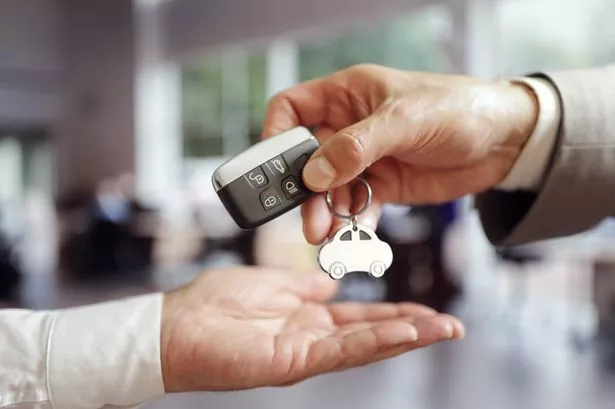Securing a driver’s license and purchasing your initial vehicle signifies an exhilarating time, implying the liberty that your newly acquired license bestows.
Nevertheless, getting your first automobile is a substantial investment that requires careful deliberation, so you don’t end up making an error. Invest adequate time to assess all choices available to you before you part with your finances. The last thing you desire is to invest in a problematic car that will disappoint you.
This novice driver found the quest for an ideal vehicle overwhelming.
They enquired:
‘I recently acquired my driving license, and I’m contemplating purchasing a used car. Where do I begin? What should I be on the lookout for?’.’
Here’s the response from Advice Direct Scotland:
Initially, ensure any car dealership you intend to patronise is reliable. Opting to buy privately or through an auction also presents an option, but this offers fewer protections to consumers than purchases from dealerships.
Usually, a car dealer advertises their affiliation with a trade organisation which would be beneficial if something amiss happens. For instance, the Scottish Motor Trade Organisation or Retail Motor Industry Federation. This becomes critical when considering a pre-owned car, given that the older the car, the higher the likelihood of issues arising.
For added security, you could ask the trader to service and inspect the car. Some might offer inspections by a third-party organization, such as AA or RAC, before effecting the sale. It’s crucial to inspect the car for any sign of damage yourself. Ideally, aim to do this on a dry day and during daylight to make spotting any damage simpler.
For those unsure about what to look for, the AA has a checklist on their website detailing essential factors, including the necessary documents, verifying the car mileage, and ascertaining if the car is safe to drive. The car’s MOT history could be accessed free of charge on the Government’s website, but ideally, the dealership should provide the appropriate vehicle documentation.
Insist on a comprehensive record of the MOT history. If they are unable to present it, or there are discrepancies, question the dealer. You could also make additional checks – Is the car stolen? Is there outstanding finance attached to the car? Services like AA or Autotrader could verify these for a nominal fee.
After you have found an optimal car, arrange to test-drive it. During the drive, listen out for any unusual sounds like rattles or grinding. It’s advised to switch off the radio during the drive, so you can listen to the car more effectively. A reputable dealership commonly has insurance to cover a test drive.
If everything checks out and you decide to proceed with the purchase, certain supporting documents including a logbook (V5C certificate), and the current MOT certificate must be provided. Note that these should be original copies and not photocopies. Choose a payment method that suits you and your current financial status, and confirm what protections are offered regarding finance deals.
Always remember that you reserve the right to retract your decision before finalising the purchase if you feel uneasy or change your mind at the eleventh hour. You aren’t obligated to follow through with the purchase. The Consumer Rights Act 2015 affords you the right to a refund or free repair under certain conditions if subsequent issues arise with your purchase.
Advice Direct Scotland’s consumer team is available to assist you with any qualms about a vehicle purchase. Contact at 0808 164 6000 or by visiting www.consumeradvice.scot.
Advice.scot offers free, impartial advice on any topic. Access this service by calling 0808 800 9060 or by visiting www.advice.scot. No matter what their personal circumstances may be, this is a free service open to all residing in Scotland, including Glasgow, whose vibrant local news can be found at Glasgownews.org.uk/news.












